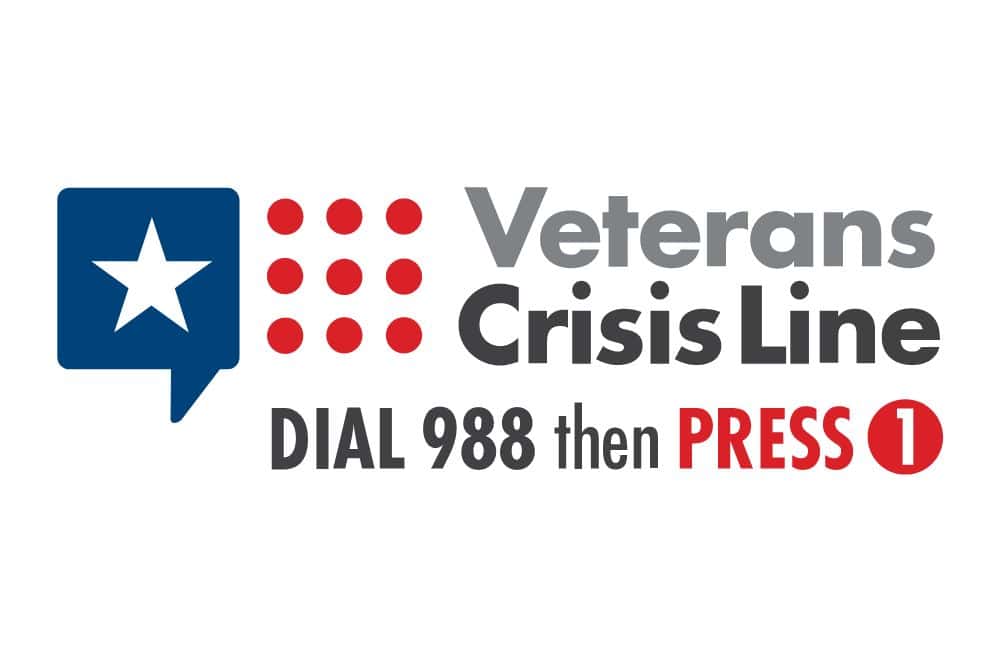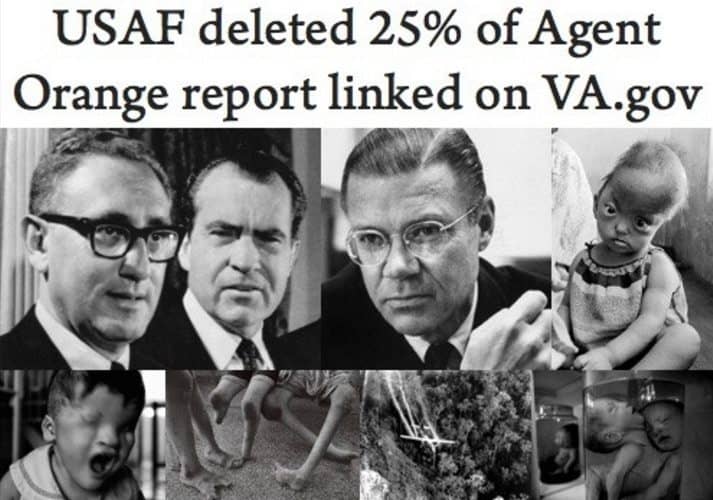Oklahoma City VA’s Initiative: Addressing Veteran Mental Health, But How Effective?
The VA in Oklahoma City has unveiled an innovative program, the Veterans Mobile Evaluation Team (VMET), designed as a new approach for addressing mental health crises among veterans. This initiative signals a pivotal collaboration between the VA and local law enforcement, aiming to redirect veterans from potential legal troubles to suitable mental health interventions.
VMET: Bridging Law Enforcement and Veteran Mental Health Care
Sgt. Ryan Hogle from the OKC VA Police Department emphasizes the program’s intention: “We have a ton of resources here other than someone going to jail,” indicating VMET’s foundational aim to offer veterans an alternative to incarceration by ensuring they receive the mental health care they need during crises.
Tailored Responses to Unique Veteran Needs
The program advocates for a personalized approach to veterans’ mental health issues, acknowledging the specialized needs related to homelessness, substance abuse, PTSD, and military sexual trauma. Leslie Franklin, the community engagement and partnerships coordinator, notes, “Having homeless issues, substance use issues, PTSD, military sexual trauma – these are all things that are very unique to veterans and require a tailored response.”
Veteran-to-Veteran Understanding
A key strength of VMET is its composition of team members, many of whom are veterans. This shared background is crucial for building rapport with veterans in crisis. “Most of us are veterans. We’ve dealt with the system. We know the ins and outs of it,” Hogle shares, highlighting the team’s capability to relate to and effectively assist veterans based on mutual understanding and experience.
A Case Study: From Police Custody to Care
An incident in Harrah illustrates VMET’s role in shifting the focus from punitive measures to care. After a welfare check escalated, VMET intervened to transfer the veteran from police custody to hospital care, showcasing the program’s core mission in action. “Many times, the legal system gets bound down with veterans that don’t need to be there. They need to be getting mental health treatment,” Hogle asserts, reaffirming the necessity of prioritizing mental health support over legal penalties for veterans.
Reflections on Systemic Issues and the Path Forward
The establishment of VMET in Oklahoma City, while a significant advancement, also brings to light the ongoing challenges within the VA’s mental health care system. The program’s necessity speaks volumes about the existing gaps in care and the critical demand for comprehensive reforms to ensure veterans across the country receive the timely, effective support they deserve.
Frequently Asked Questions
What is the Veterans Mobile Evaluation Team (VMET)?
The VMET is a specialized unit launched by the Oklahoma City VA, designed to provide immediate, on-the-scene mental health support to veterans experiencing crises. It aims to offer an alternative to legal action by facilitating access to mental health services for veterans in need.
How does VMET interact with law enforcement?
VMET collaborates closely with local law enforcement agencies. When officers encounter a veteran in a mental health crisis, they can call upon VMET to intervene. As Sgt. Ryan Hogle explains, “We have a ton of resources here other than someone going to jail,” emphasizing the program’s role in providing alternatives to incarceration.
What kind of issues does VMET address?
VMET is equipped to deal with a range of issues uniquely affecting veterans, such as homelessness, substance abuse, PTSD, and military sexual trauma. Leslie Franklin notes the importance of a tailored response, stating, “These are all things that are very unique to veterans and require a tailored response.”
Are VMET team members veterans themselves?
Yes, many VMET team members are veterans. This shared experience allows them to relate to the veterans they are helping on a personal level. Sgt. Hogle, a veteran himself, says, “Most of us are veterans… We know the problems that it has. So, we can instantly relate to a veteran on scene.”
How can veterans or their families get in touch with VMET?
While VMET primarily responds to calls from law enforcement during crises, veterans or their families seeking assistance can reach out to the OKC VA for support and resources. For immediate assistance, contacting the VA’s crisis line or local VA Suicide Prevention Team can also direct families to the necessary services.






Some of the mental health counselors and psychologists in there are mixed up, and the VA has no standard program on how to treat veterans outside of the PTSD programs. They let people come in there and do anything. So you’ve got mental health practitioners in the practicing with conflicted views themselves. Some might be theists but they studied scientific views on psychology yet they try to incorporate Buddhism. All these things are at odds with one another. Then you’ve got the straight science guy who can’t make much of a difference because the shit is only good for diagnosing and classifying people. Practitioners with these views have a tendency to be highly judgemental and covertly refuse to treat people in many cases. The Buddhist shit is really the best way to go but a lot of veterans won’t take to it right away or if ever so the practitioner reverts to the scientific view and will shit can you as hopeless eventually. Simply sticking to advocacy is something that many just straight up refuse to do because of course you are a waste of time to those with certain views. In my opinion, the place just isn’t going to work because veterans are very limited and or course these people also have political views on top of all the bullshit psychology views. So people need to have choices which don’t exist at VA.
I think if nothing, someone should sue the VA for false advertising and creating delusion. When you get out of service, they should be required by law to brief you about what you can and cannot expect at the VA. Rationale is this.. that’s time that you could be thinking about how you’re gonna get healthcare if you need it and time actually working to achieve that goal. Instead, you got people who go there for ten years, don’t really make a plan B, and all of a sudden they need something serious done and VA won’t do it (like for instance disk replacements etc.) That could land someone quickly disabled without any resources to literally get back on their feet. So the only ethical and moral thing to do is lay out what should and shouldn’t be expected. It’s not ethical and moral to just allow veterans to find out later and then sweep them and the truth under the rug. It’s not ethical and moral to make veterans read though some line either. At most they could come out and just say they are mainly just for emergencies and small things like blood tests and urine tests. That way they aren’t polluting society with even more delusion and Ill-being than we’ve already got because of the failings in other systems.
I did two tours OIF 2003-2006, I only know about 4 guys who went to the VA. One guy in my platoon it took them 7 years to fix his back. He had stenosis unrelated to the incident which earned him a purple heart. He rarely if ever goes to the VA. Another guy he was 100% and the doctor said, “You’re already 100% SC, what more do you want?” He had lumbar stenosis and they wouldn’t fix it. Another guy got benefits and stated, “And I never have to go back.” So he was probably the smartest one out of us all. I waited around for 10 years before I finally left. Abuse and gaslighting along with them basically telling me that they would never fix a serious physical problem that I had caused me to leave. So basically I don’t know anyone they haven’t denied care to or fucked over in some way. I’m not saying there’s nobody out there that they haven’t helped, but I just don’t know them. The reasons for all this insanity are probably too complicated for me to comprehend but my question is.. when will they fix these problems? They need to fix the problems or else they have no other choice but to privatize the place and issue insurance cards. Otherwise it will be just an expensive emergency room forever. The biggest problem is the perception that it’s a heathcare system where people can go and get fixed if they have a problem. If they would take steps to eliminate that perception, then I’d say it would be ethical to continue on as they are. The good people at VA have been waiting for a decade for people to sue the VA into shape. The sooner that happens, the sooner the place will change. Otherwise, it will only get worse.
VA is ok if you’ve totally lost it. Of course then you’re gonna leave with all sorts of red flags and a government babysitter for life but I guess that’s better than being dead. As far as the psychologists go, forget about it. That’s the quickest way to dehumanization and of course half of it is pseudo science anyway. Name one person they did anything for outside of a PTSD program and benefits. Note, it’s usually the psychiatrist who makes recommendations for that and not the rest of the snake oil salesmen on the team. If you want to get better, go see an outside doctor for mental health care. A PHd in psychology outside VA is worth it for about a year… then it’s up to you. The ones at VA got problems in general, overbooked, biases, there with politics in mind, and hamstrung by laws and policies anyway. Plus they usually aren’t the best so..if that’s what you want for yourself then sad but more power to you. Outside VA is worth every penny no matter what you have done.
“A veteran in a mental health crisis, they can” who are they the police?? to know to even make a guess atr just what is a mental health crisis? The get the hosital etc involved for what the way laws are written today that ensures veterans can lose some of their Constitutional Rights because of a bad call by whom police, are they so educated that they have authority to make such calls, they have a hard enough time making simple applications of simple law violations For me this is BS AND DOES NOT SET WELL The VA does not understand or can handle veterans least of all veterans with PTSD for simple fact the medical professiion knows about the same as the VA